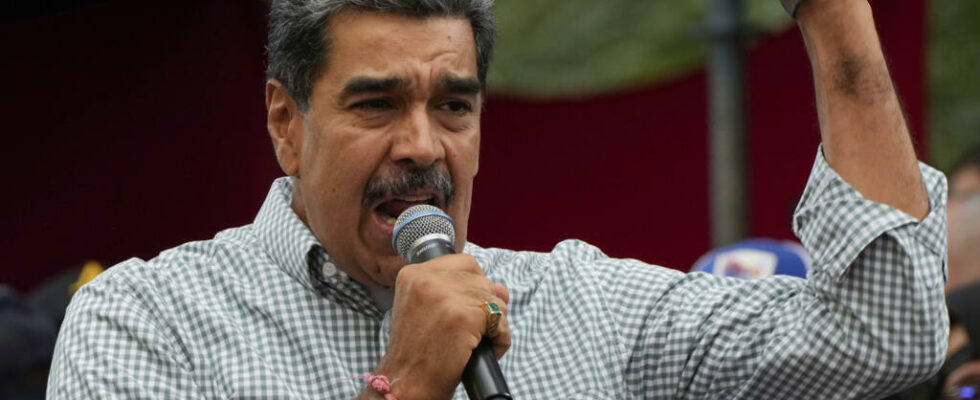Systematic repression and crimes against humanity committed by the state apparatus. This is what a new UN report on the human rights situation in Venezuela points out, which has continued to deteriorate following the contested re-election of President Nicolas Maduro last July. The report was presented on Tuesday, September 17 in Geneva. Interview with Marta Valinas, chair of the group of experts that investigated Venezuela.
2 min
RFI: You have been investigating the human rights situation in Venezuela since 2019. What is the main conclusion of your new report? ?
Marta Valinas: After the presidential electionrepression, particularly through arbitrary arrests, has become very massive. We are witnessing an intensification of state repression, particularly against people who demand transparency in the election results or who have demonstrated against the results announced by the electoral authorities. All these arrests are accompanied by serious violations of the rights of the defence. The detainees, who are often accused of very serious offences, such as terrorism or hate speech, are not allowed to have contact with their families or their lawyers.
You are talking about a generalized policy, orchestrated to silence the opposition.
Our research shows that arbitrary detentions and violations of due process are not really isolated acts. They are part of this policy of the authorities to repress dissent. The human rights violations that we have documented engage the responsibility of the state. Under international human rights treaties, the Venezuelan state is responsible for these violations and must ensure that those responsible are held accountable for their actions. The president bears individual responsibility, but so do others, not to mention law enforcement, who should, in our view, be investigated.
The repression is directed against political opponents, ordinary citizens, but also members of the armed forces. For what purpose?
Since we began our work in 2019, with our first expert mission, the government has never responded to our communications and requests for information, meetings or entry into the country. This is still the case. Despite this, we believe that the main obstacle to our work is the climate of fear that has settled in the country. This fear is a direct consequence of state repression and is the main obstacle to our documentation mission. The relatives of the victims who died during the protests, for example, are very afraid to speak out, more than before. They are afraid to denounce what happened to their loved ones.
Also readVenezuela: ICC Prosecutor Calls for Respect for the Rule of Law
